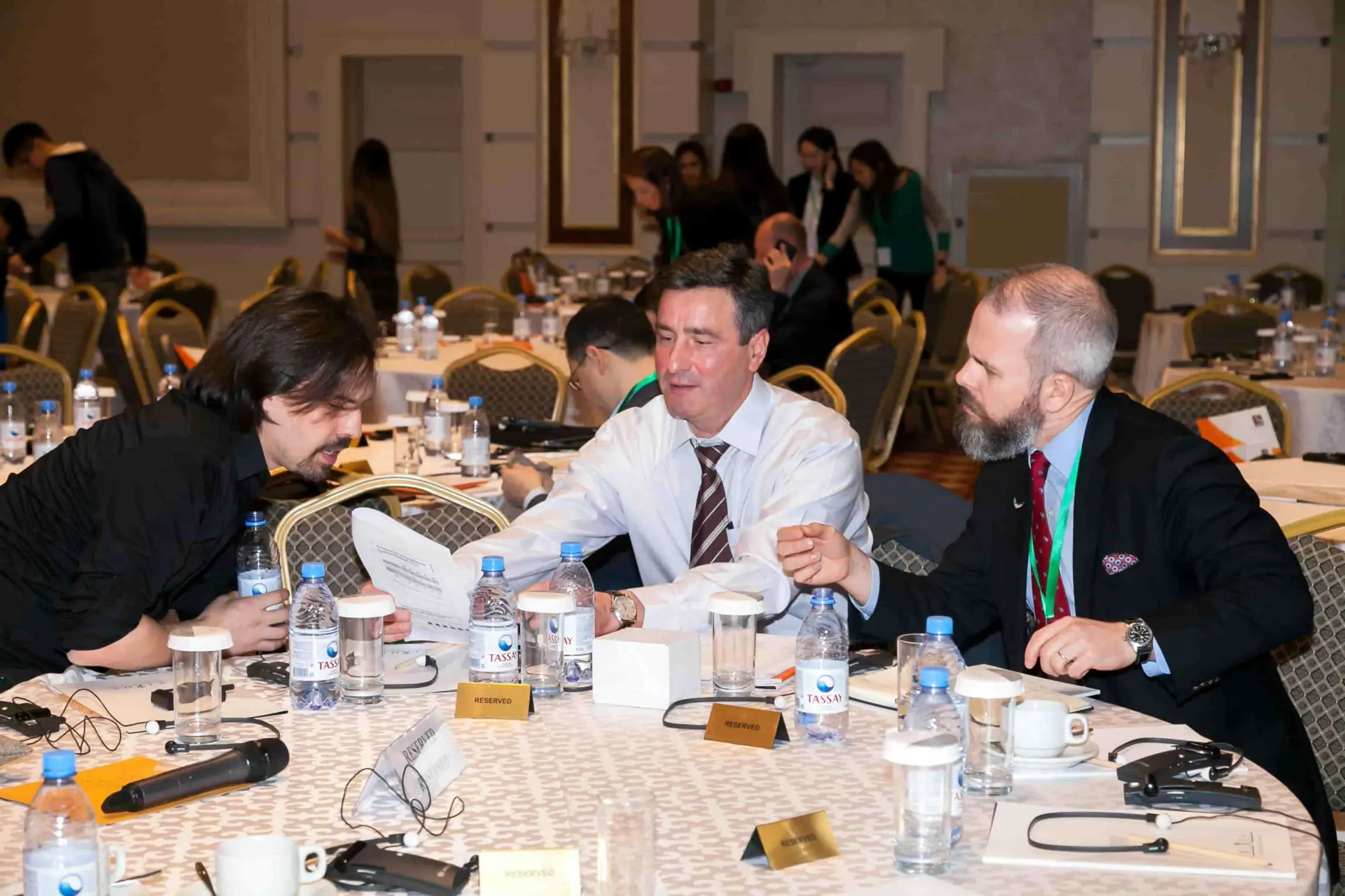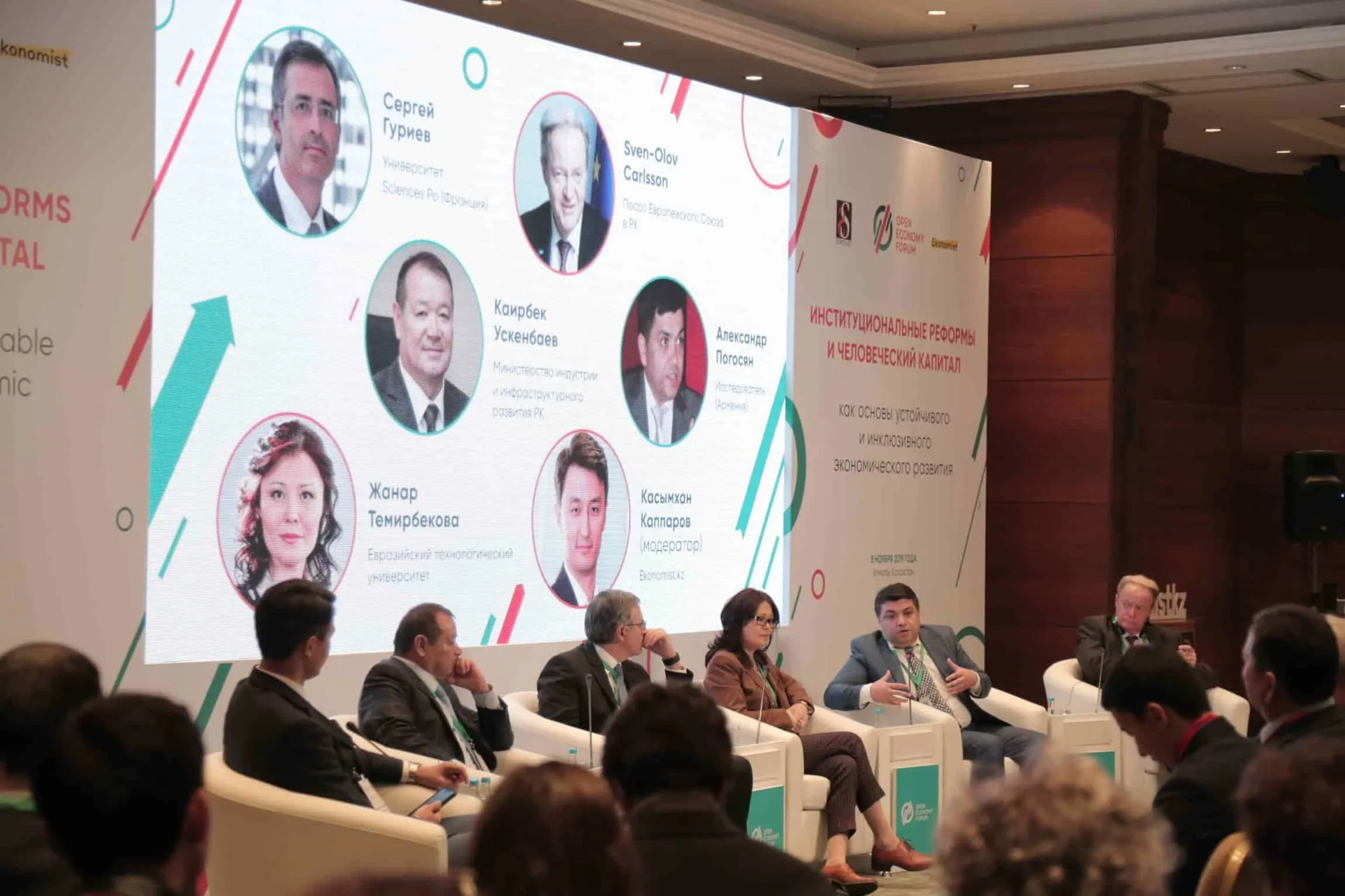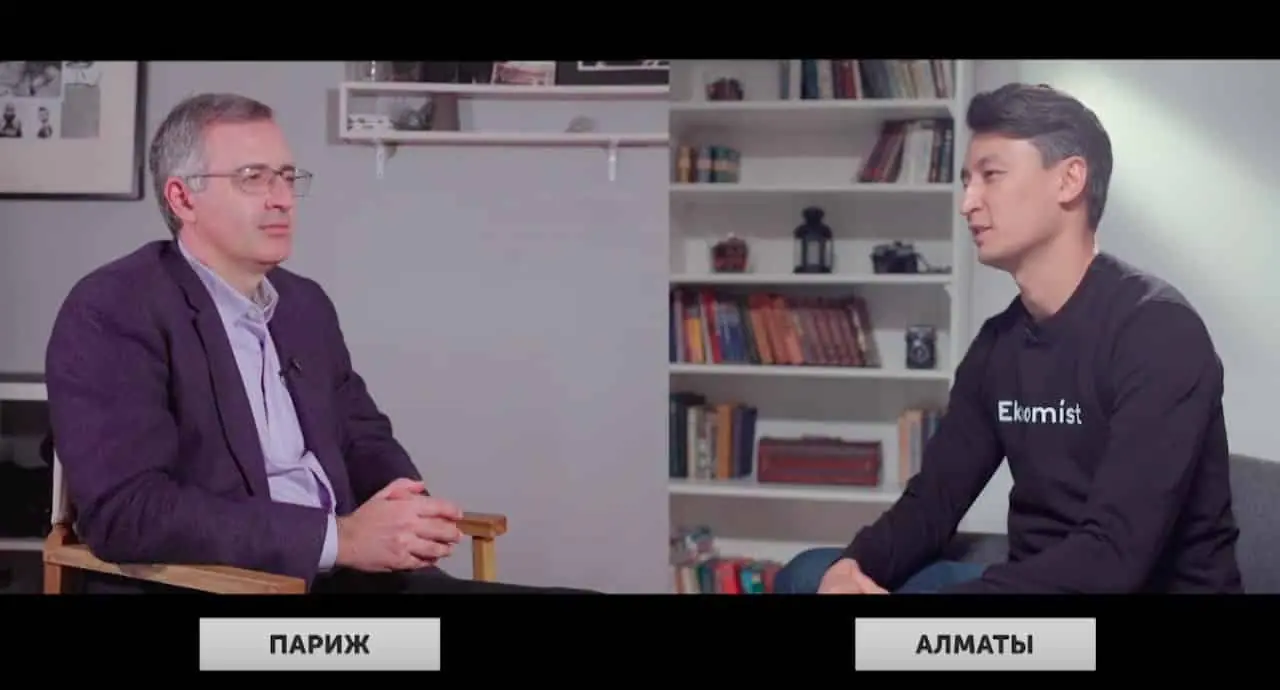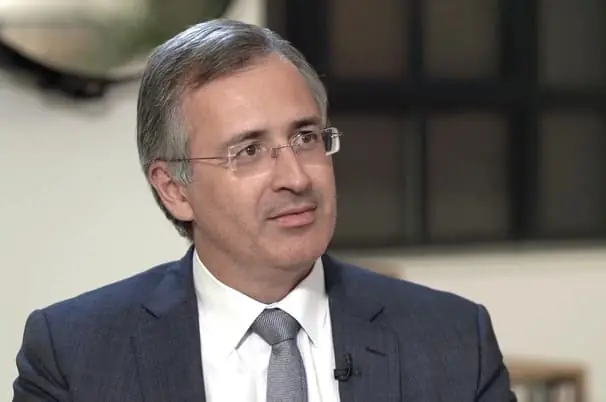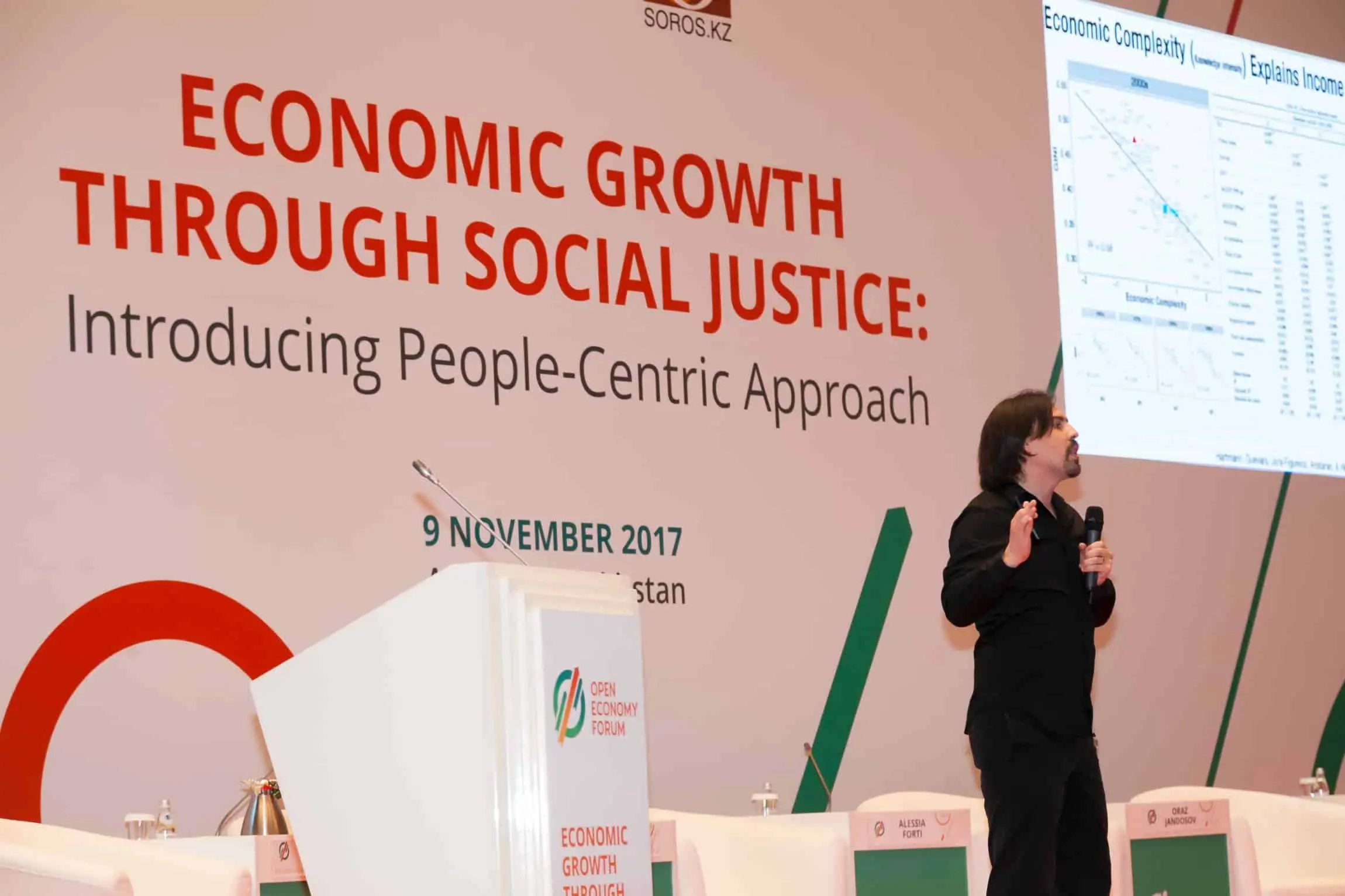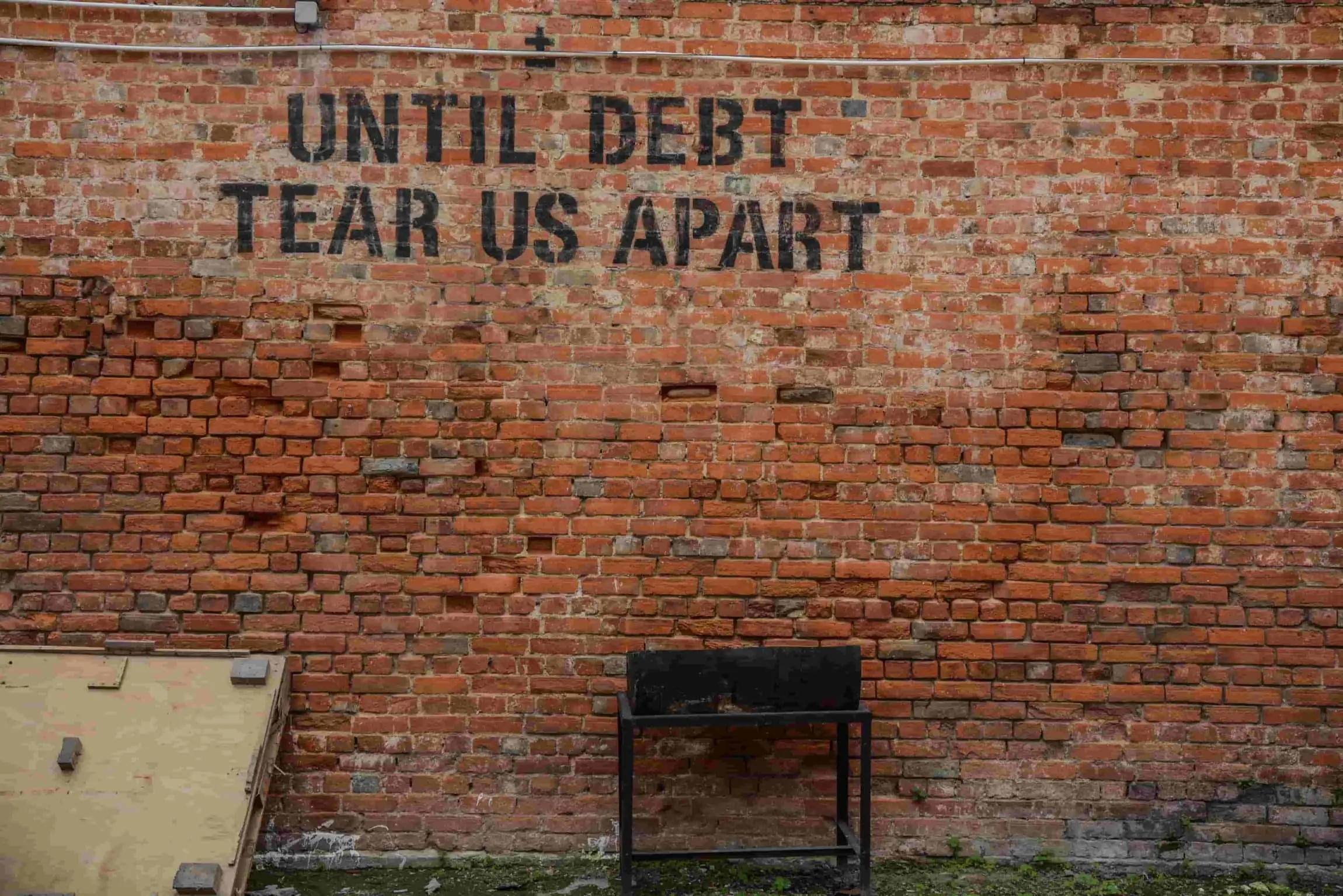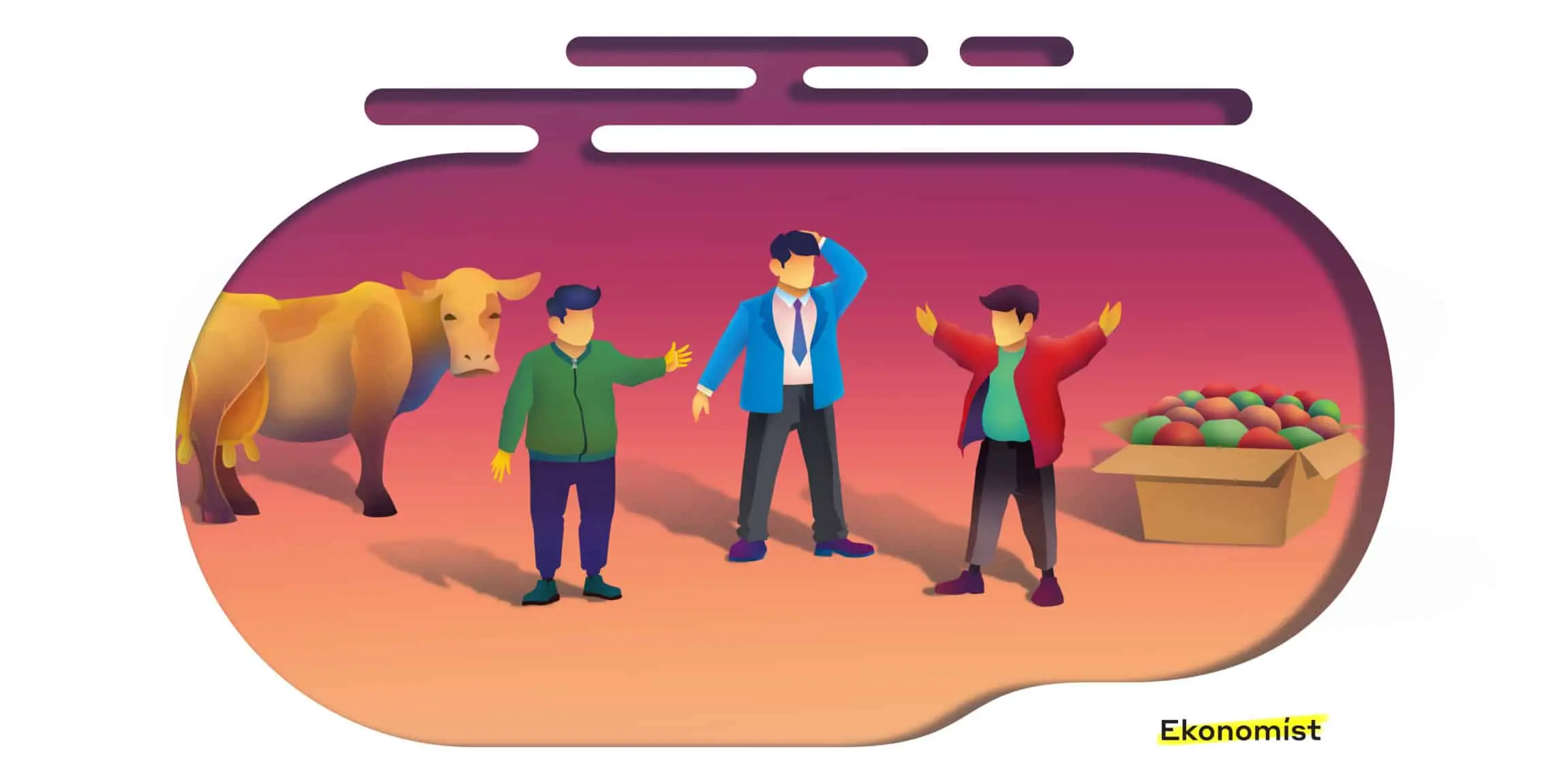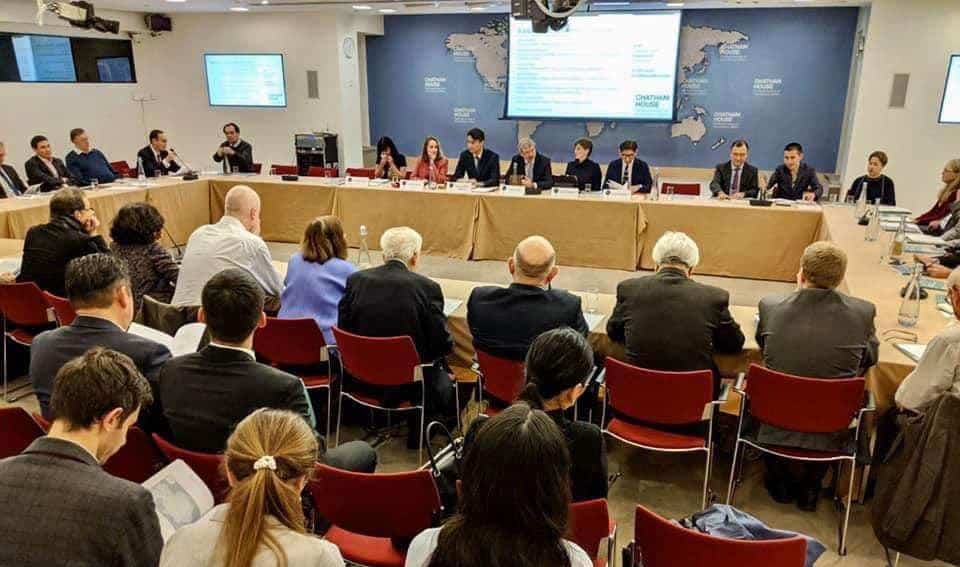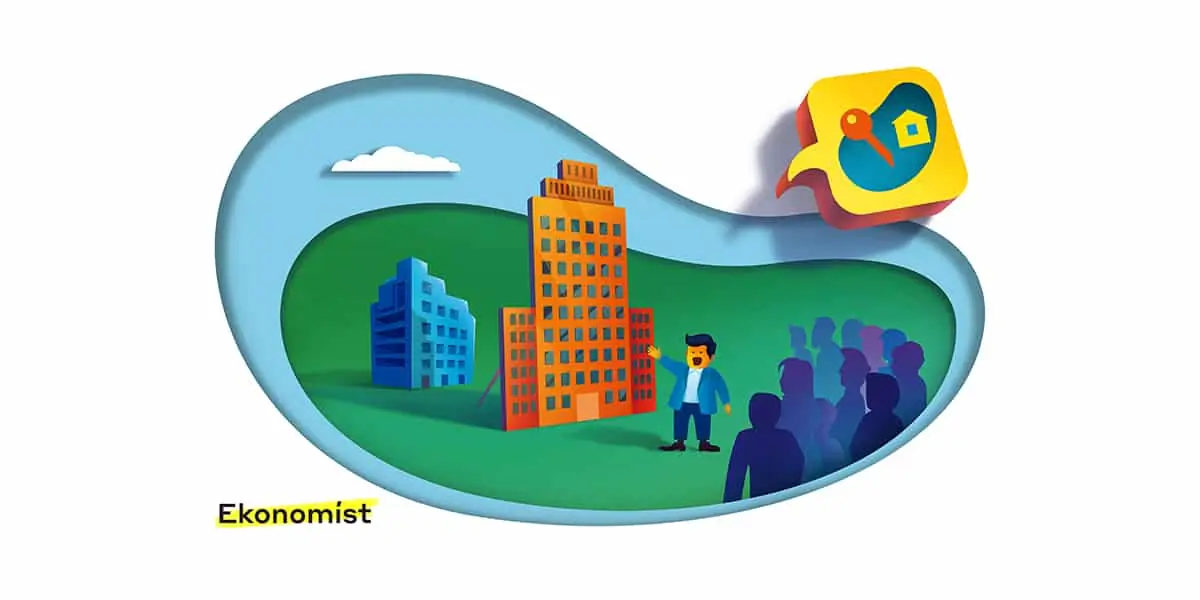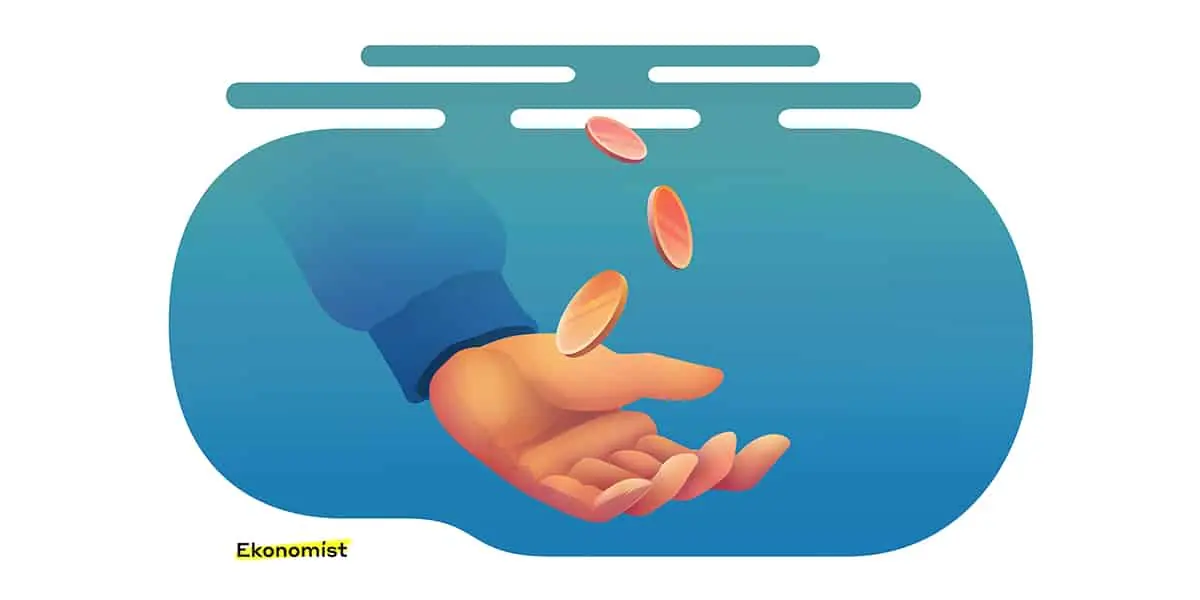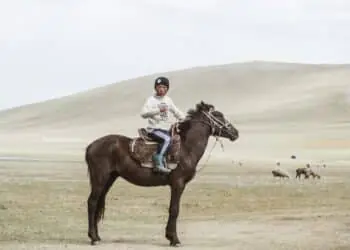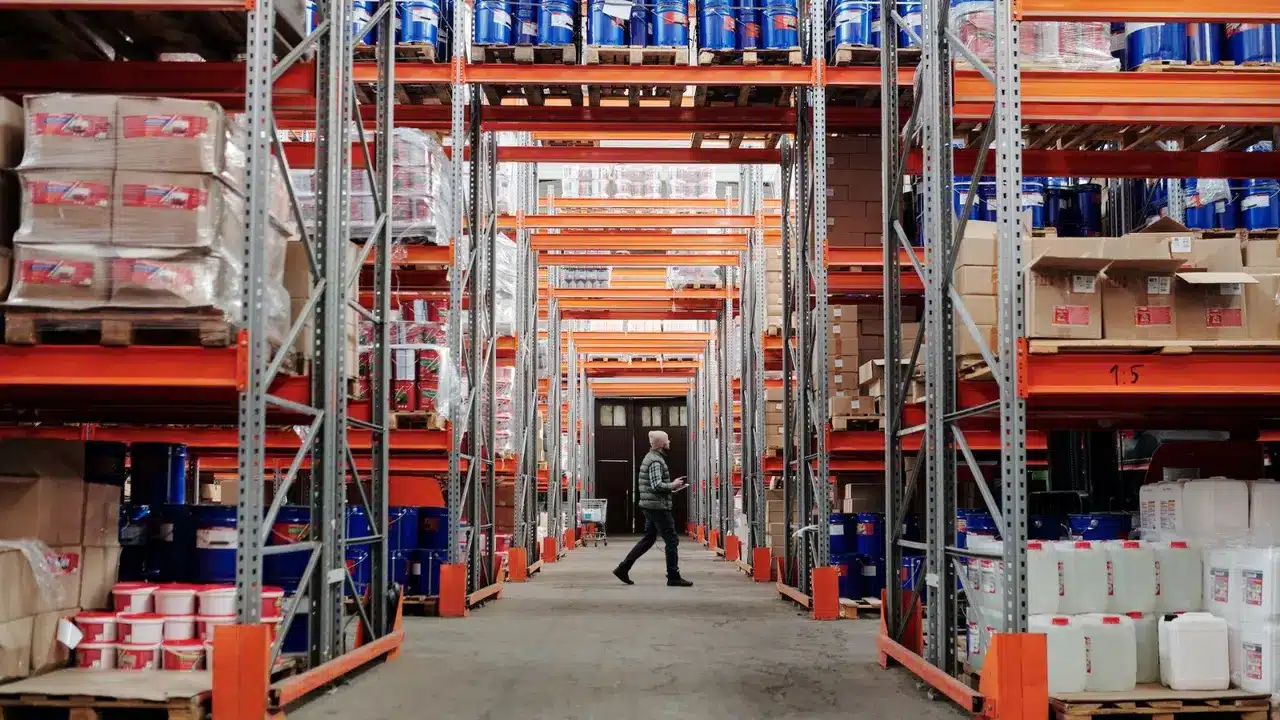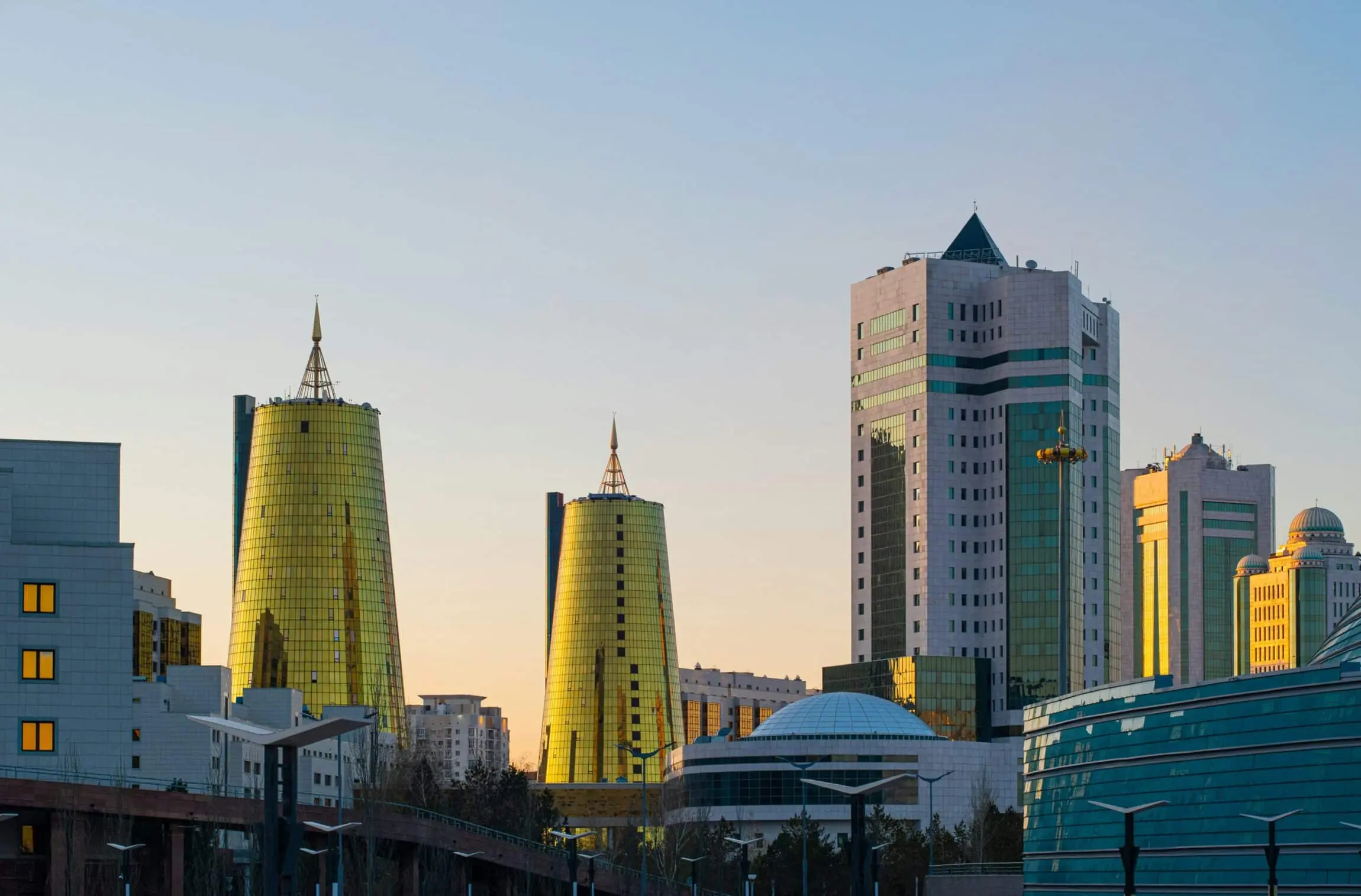PROGRAM OF THE OPEN ECONOMY FORUM
| Bios of Speakers |
8:00 — 9:00
Registration and welcome coffee
9:00 — 9:30
Welcome speech by Aida Aidarkulova, the Chair of the Executive Council of the Soros Foundation-Kazakhstan and Kassymkhan Kapparov, the founder of Ekonomist.kz
9:30 — 10:20
Guest Lecture
“Quality of Institutions and Their Impact on Economic Growth and Inequality”
Sergey Guriev, Doctor of Science in Economics, professor of Economics at Sciences Po University (France).
10:20 — 11:00
Panel session No 1 — Institutional development
“The Role of Institutional Development in Ensuring Sustainable and Inclusive Economic Growth in Developing, Natural Resource — Based Economies in Transition: Universal Lessons for Kazakhstan”
- Sergey Guriev, Doctor of Science in Economics, professor of Economics at Sciences Po University (France), former chief economist of the EBRD, former rector of New Economic School
- Kairbek Uskenbayev, First Vice Minister of Industry and Infrastructure Development of the Republic of Kazakhstan
- H.E. Mr Sven-Olov Carlsson, Ambassador of the European Union in the Republic of Kazakhstan
- Alexander Poghossian, Researcher and International Consultant in Private Sector Development (Armenia)
- Zhanar Temirbekova, rector of the Eurasian Technological University
- Kassymkhan Kapparov (moderator), managing partner of EMCG, founder of Ekonomist.kz
A full description of the panel session questions is given below.
11:00 — 11:30
Coffee break
11:30 — 13:00
Panel session №2 – Economic welfare
“Welfare Economics: New Approaches in Determining Economic Development, Quality of Life and Well-Being of Countries”
- Tur-Od Lkhagvajav, Chair of the Transparency International — Mongolia, Steering Committee member of the Open Government Partnership, Senior Advisor to the MNCCI President (Mongolia)
- William Seitz, Economist, World Bank
- Zhaksybek Kulekeyev, scientific director of the Center for Applied Economics Research, former Minister of Economy of the Republic of Kazakhstan (1999-2002)
- Irina Smirnova, Deputy of the Mazhilis of the Parliament of the Republic of Kazakhstan, Member of the Committee for Social and Cultural Development
- Nurzhan Altayev, Member of the Mazhilis of the Parliament of the Republic of Kazakhstan, Member of the Committee on Agricultural Issues
- Sergey Domnin (moderator), editor of Ekonomist.kz
A full description of the panel session questions is given below.
13:00 — 14:00
Lunch
14:00 — 15:30
The panel session № 3 – Human capital
«Human Capital as the Basis of Economic Growth and Development: Improving Economic Opportunities and Social Elevators for Young People in Kazakhstan»
- Dariia Mykhailyshyna, Economist at the Centre for Economic Strategy (Ukraine)
- Bakytbek Satybekov, Director of the Public Association “Alliance for the Promotion of Civil Initiatives”, Co-Chair of the National Open Government Forum (Kyrgyzstan)
- Serik Beissembayev, researcher — sociologist, expert at the Institute of World Economy and Politics at the Foundation of the First President of the Republic of Kazakhstan
- Ulzhan Kalimuratkyzy, Head of the Labor Market Forecasting Department of the Department for the Development of the National Qualification and Forecasting System of the Ministry of Labor and Social Protection of the Population of the Republic of Kazakhstan
- Zhaslan Nurbayev, professor at the Eurasian National University, social sphere expert at the Ekonomist.kz
- Victoria Tsay (moderator), Advisor on internal communications, «Narxoz» University
A full description of the panel session questions is given below.
15:30 — 15:50
Coffee break
16:00 — 17:30
Panel session № 4 — Inequality
“The Multi-Faceted Face of Inequality: Increasing Inequality as the Main Obstacle to Sustainable and Inclusive Economic Development in Developing Countries”
- Giorgi Khishtovani, Director of Research, Policy and Management Consulting Group (Georgia)
- Alexander Chubrik, Director of the IPM Research Center, Member of the Advisory Board at the National Bank of the Republic of Belarus (Belarus)
- Nariman Mukushev, Vice-Minister of labor and social protection of population of the Republic of Kazakhstan
- Veniamin Alayev, chairman of the Public Association “Human Rights Commission named after Kairat Imanaliyev”, project manager for financial inclusion of people with disabilities in the banking system of Kazakhstan
- Aizhan Alzhanova, co-founder of the “MamaPro” Foundation
- Irina Kurbanova (moderator), Public Policy Initiative Coordinator of the Soros-Kazakhstan Foundation
A full description of the panel session questions is given below.
17:30 — 18:00
Closing remarks by Aida Aidarkulova, the Chair of the Executive Council of the Soros Foundation-Kazakhstan and Kassymkhan Kapparov, the founder of Ekonomist.kz
18:00 — 19:00
Drinks, networking for the participants, photos
*****
Description of Panel Sessions
Panel session 1 — Institutional development
“The Role of Institutional Development in Ensuring Sustainable and Inclusive Economic Growth in Developing, Natural Resource — Based Economies in Transition: Universal Lessons for Kazakhstan”
Description: The importance of having a developed institutional environment for sustainable and inclusive economic development in countries with economies in transition. Ensuring economic development based on the principles of Good Governance.
The rates of economic growth in most transitional and developing countries, as well as countries with commodity economies, remain below the pre-crisis period. According to experts, in the face of persisting adverse external economic conditions (trade wars and lower prices for commodities), the stability of the economies of developing countries should rely on internal institutional transformations in a much larger extent.
Thus, according to the recommendations of economists, countries with economies in transition can increase the pace and quality of economic growth through the development of economic, political, legal, legislative and educational institutions, i.e. creating a high-quality institutional environment for the long-term sustainable and inclusive development. Thus, in order to revive economic growth, developing countries need to give a new impulse to institutional reforms and improve the work of existing institutions. At the same time, practice shows that the presence of significant natural resources can slow down or even impede the effective implementation of institutional reforms. The problem is that states that are rich in natural resources usually take on a monopoly on resource rents, thereby relieving themselves of the need to levy significant taxes on populations that, in response, are less insistent on deep institutional reforms.
Questions for the discussion:
- What is the relationship between institutional reforms and sustainable economic development in Kazakhstan?
- How does the quality of state institutions affect sustainable, inclusive economic development: Kazakhstani model and international experience?
- How to evaluate the quality and effectiveness of state institutions?
- What is the need for economic and political competition in Kazakhstan?
- Can the countries with transitional economies catch up in terms of life quality with the most advanced countries with market economies? What socio-economic policy is needed for this?
- How to prepare and carry out institutional reforms in order to avoid negative consequences in Kazakhstan?
- How can developing countries deal with political and economic populism? What lessons can Kazakhstan learn?
- How can the principles of Good Governance help Kazakhstan maintain high themes of economic growth, reduce the problem of growing inequality in society and avoid the “middle income trap”?
Panel session 2 – Economic welfare
“Welfare Economics: New Approaches in Determining Economic Development, Quality of Life and Well-Being of Countries”
Description: Expert discussions on new approaches in measuring and achieving economic development. Participants will discuss what it means in the modern world to be a developed, advanced country that ensures the well-being and welfare of its citizens.
Recently, the number of economists who recognize that GDP and other established economic indicators do not reflect the comprehensive well-being and economic development of the country has increased. As an example, for a long time, many economists considered the growth of GDP and GDP per capita as the most appropriate indicators of economic development and country welfare. However, significant changes have occurred in the understanding of these terms over the past few years. What does economic development mean today? What reforms lead to the well-being of the population? Since economic development is necessary primarily in order to ensure the long-term well-being and the well-being of citizens in the economy, a new direction has emerged — the welfare economy. Within the framework of this direction, alternative indicators have been created to allow the determination of the economic development of nations from different perspectives.
Questions for discussion:
- What is economic welfare? What and how much does a person need for the well-being and happiness in Kazakhstan and the world?
- What economic and non-economic factors affect people’s well-being? Country comparison with Kazakhstan.
- Why are traditional economic indicators (GDP growth, GDP per capita, income growth) not always directly converted into the welfare and the well-being of the population?
- How to ensure the well-being and welfare of citizens in Kazakhstan? What does the experience of developed and developing countries speak of? Conclusions and universal lessons for Kazakhstan.
- What socio-economic policies lead to the well-being and welfare of the world’s population? Are there universal lessons for Kazakhstan?
- Which countries are the most prosperous and why? What determines the level of well-being and welfare in different countries?
- The welfare of citizens and the welfare state in the face of declining resource rents in Kazakhstan
The panel session 3 – Human capital
«Human Capital as the Basis of Economic Growth and Development: Improving Economic Opportunities and Social Elevators for Young People in Kazakhstan»
Description: During the discussion, international, regional and domestic experts will discuss approaches to expanding the economic rights and opportunities of youth in developing countries.
The development of human capital through education, training and other channels is of particular importance for the country’s economic growth and well-being. In this regard, the competition for young minds and talents is increasing. The country’s ability to cultivate, retain and attract highly qualified personnel is one of the main advantages for ensuring sustainable and inclusive economic development these days. This task is especially significant for developing countries and countries with economies in transition, that are increasingly facing an unprecedented outflow of valuable specialists and professionals.
The growing share of young people in the structure of economically active population in developing countries brings serious problems needed to be fixed. These include, first of all, creation of a large number of jobs and the development of favorable institutional conditions (quality education, training and health) that would allow for productive activities. In addition, significant investments are needed to improve physical infrastructure and infrastructure in order to maintain the high level of youth employment.
According to the EBRD report: “A high-quality institutional environment helps to retain and attract qualified personnel capable of generating innovative solutions and mastering new achievements of world science and technology, thereby stimulating economic growth. A proper environment rewards university graduates by creating incentives for receiving education. Thus, the development of human capital and the improvement of institutions are mutually reinforcing, and the policy taken should pursue both of these goals simultaneously.”
Questions for discussion:
- What measures of support and expansion of economic opportunities for young people are most effective in Kazakhstan?
- How to stop the brain drain from Kazakhstan: successful experience in developing countries?
- How can the human capital accelerate economic growth in Kazakhstan?
- What investments in human capital have a greater impact on economic development in Kazakhstan?
- Investments in what level of education (kindergarden, secondary school, special education, university, business education) affect the economic development of countries with economies in transition the most? Is this experience applicable in Kazakhstan?
- How can developing countries receive “dividends” from investments in human capital?
- The impact of new technologies on the labor market and human capital in the world and Kazakhstan. What professions will be demanded the most in the future?
- How to strengthen the connection between human capital and economic growth in Kazakhstan and countries with a similar economic model?
- How to involve young people in productive economic activities within the realities of Kazakhstan?
Panel session 4 — Inequality
“The Multi-Faceted Face of Inequality: Increasing Inequality as the Main Obstacle to Sustainable and Inclusive Economic Development in Developing Countries”
Description: Participants will discuss different aspects of inequality and ways to involve all employable groups of the population into productive economic activity.
The growing inequality is regarded as of the main threats to sustainable development around the world. As an example, according to the report on inequality in the world for 2018, the income inequality has grown at different rates in almost all regions of the world in recent decades. At the same time, the strong difference in the level of inequality between countries, that are similar in level of development, underlines the important role of national policies and local institutions in the development of inequality.
Economists unanimously declare that the expansion of economic rights and opportunities for all segments of the population plays an important role in creating sustainable and inclusive economy. People who do not have chances to realize their potential and cannot succeed, lose their motivation to study, achieve career growth, perform investment and other activities that contribute to the development and prosperity of the state. In addition, market reforms that do not benefit the general public will not be supported in society for long.
Inequality is a multifaceted phenomenon that has social, economic, gender, national, regional and other dimensions. For example, according to the estimates of international development institutions, factors such as gender differences and the place of birth — city or village — remain important in terms of inequality of opportunity in developing countries. Thus, according to the national report on human development in Kazakhstan, prepared by the Whiteshield Partners with the financial support of UNDP, most of the problems associated with sustainable economic development are caused by omissions in regional development and a high degree of inequality in the republic; uneven development of innovation and infrastructure; uneven growth rates, levels of productivity and employment; differences in the levels of health and population access to healthcare; differences in educational attainment and gender inequality.
Questions for discussion:
- What are the particular features of inequality in developed and developing countries?
- What socio-economic policies contribute to the maximum involvement of employable citizens in productive activities?
- Best practices and new approaches to reduce socio-economic, gender and regional inequalities.
- The participation of the state, business, society and international institutions in reducing inequality in all forms.
- How to effectively prevent and combat sustainable forms of inequality (socio-economic inequality, regional inequality, gender inequality)?
*****



